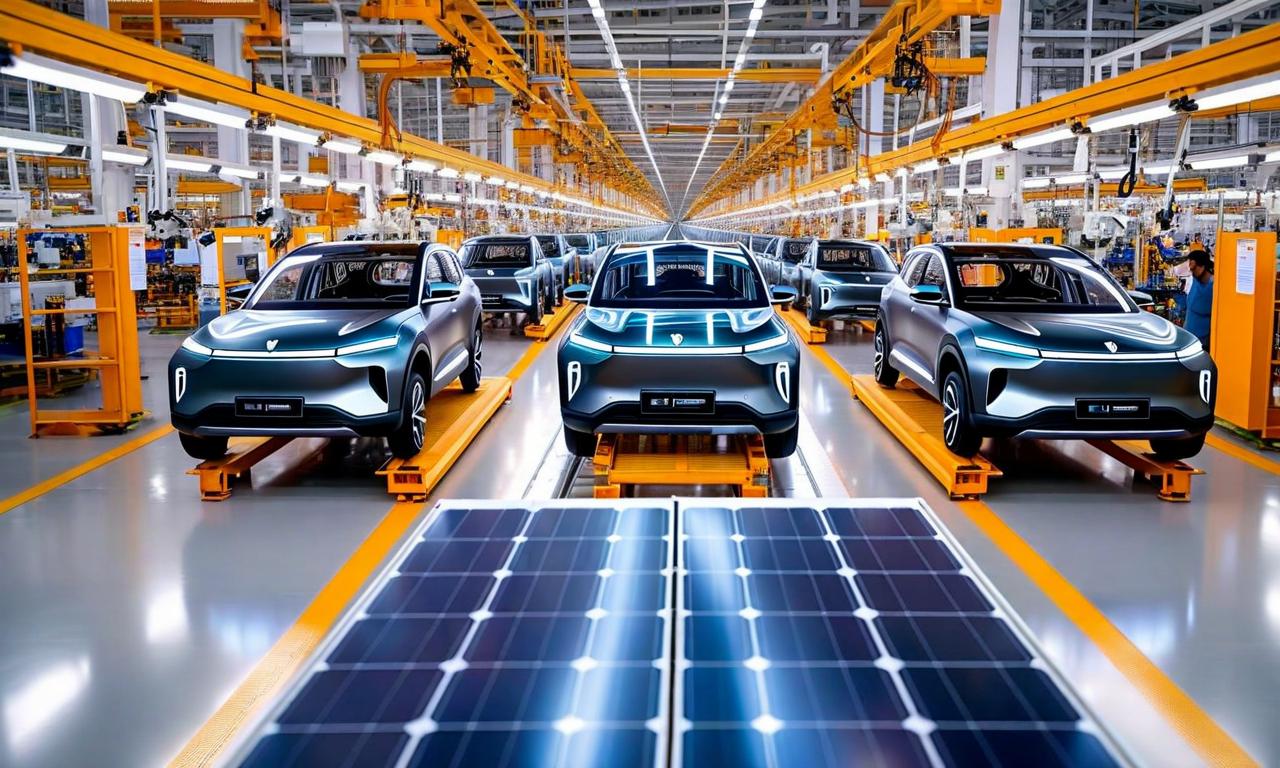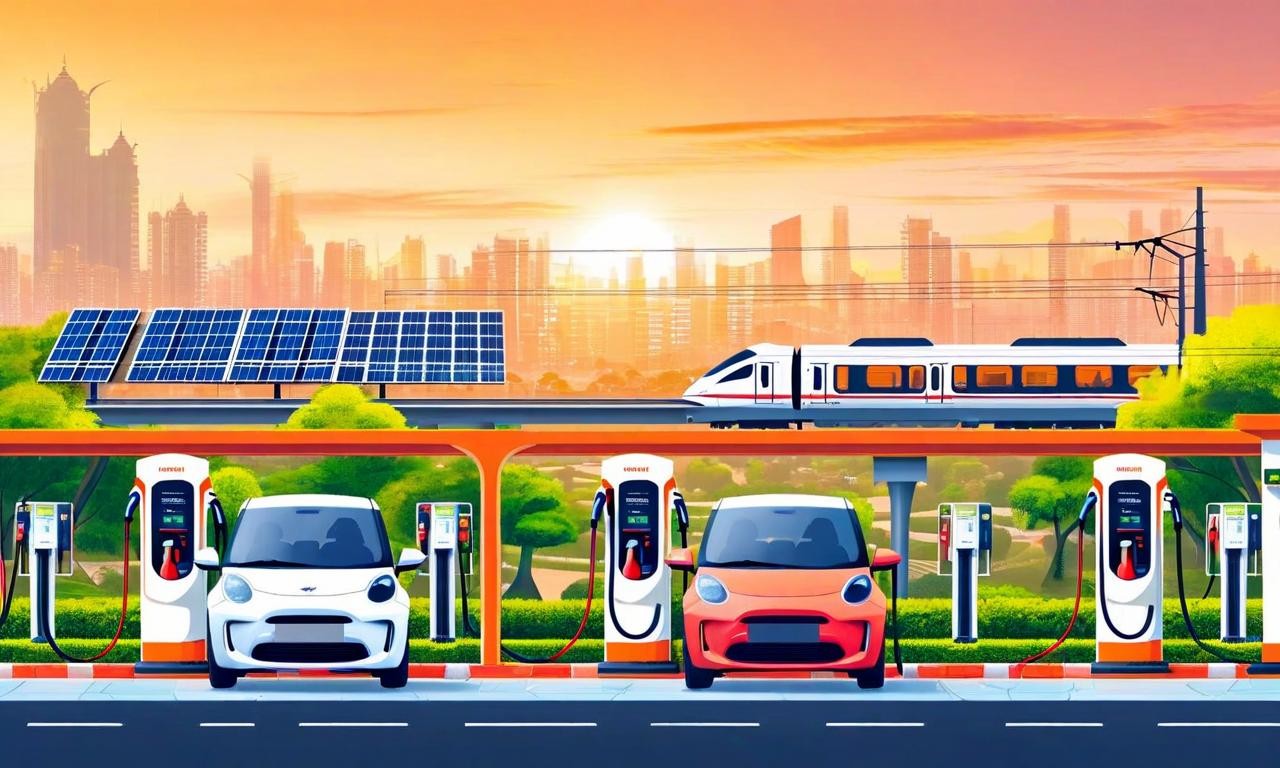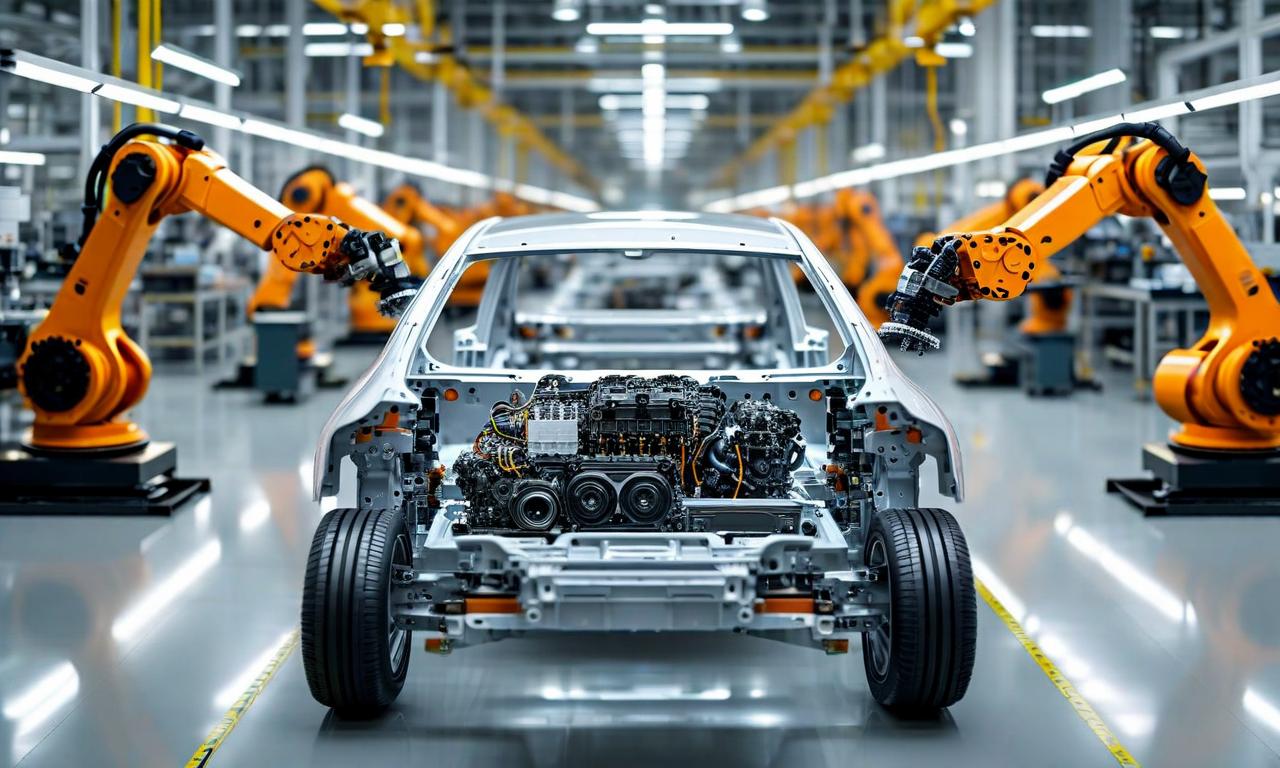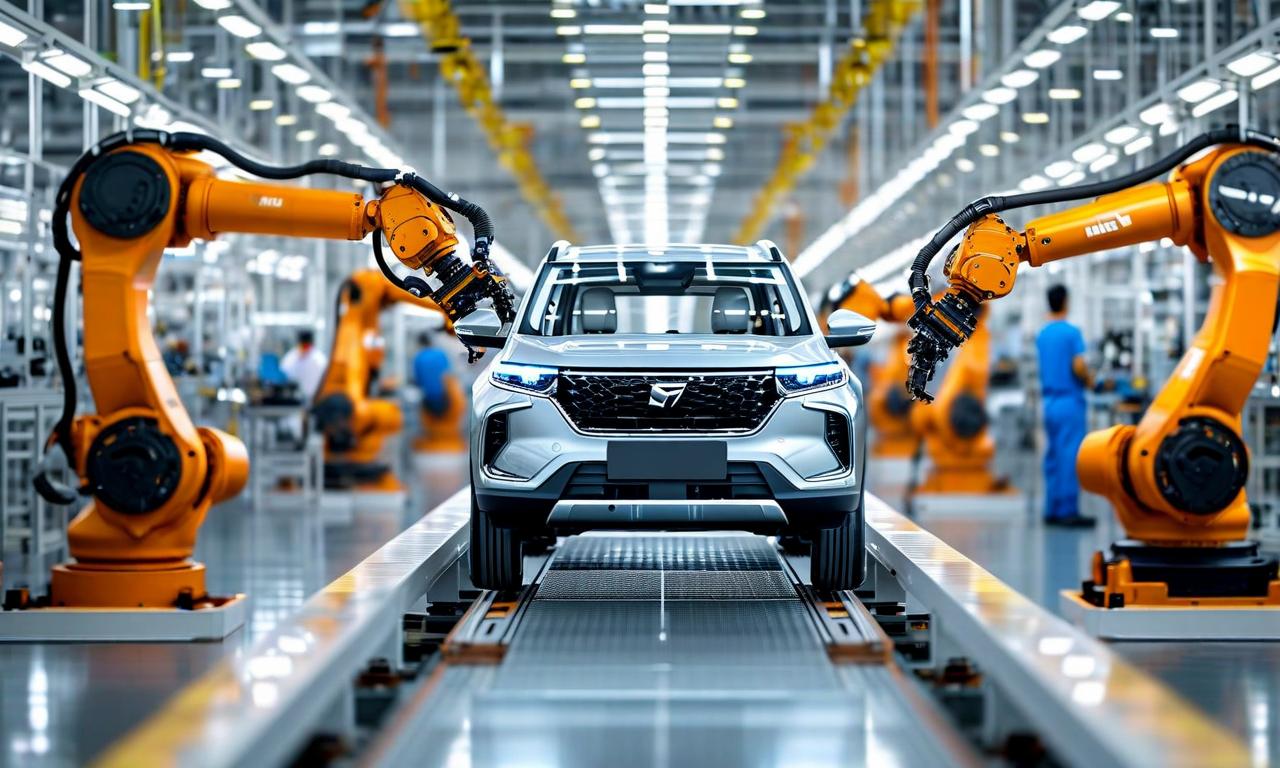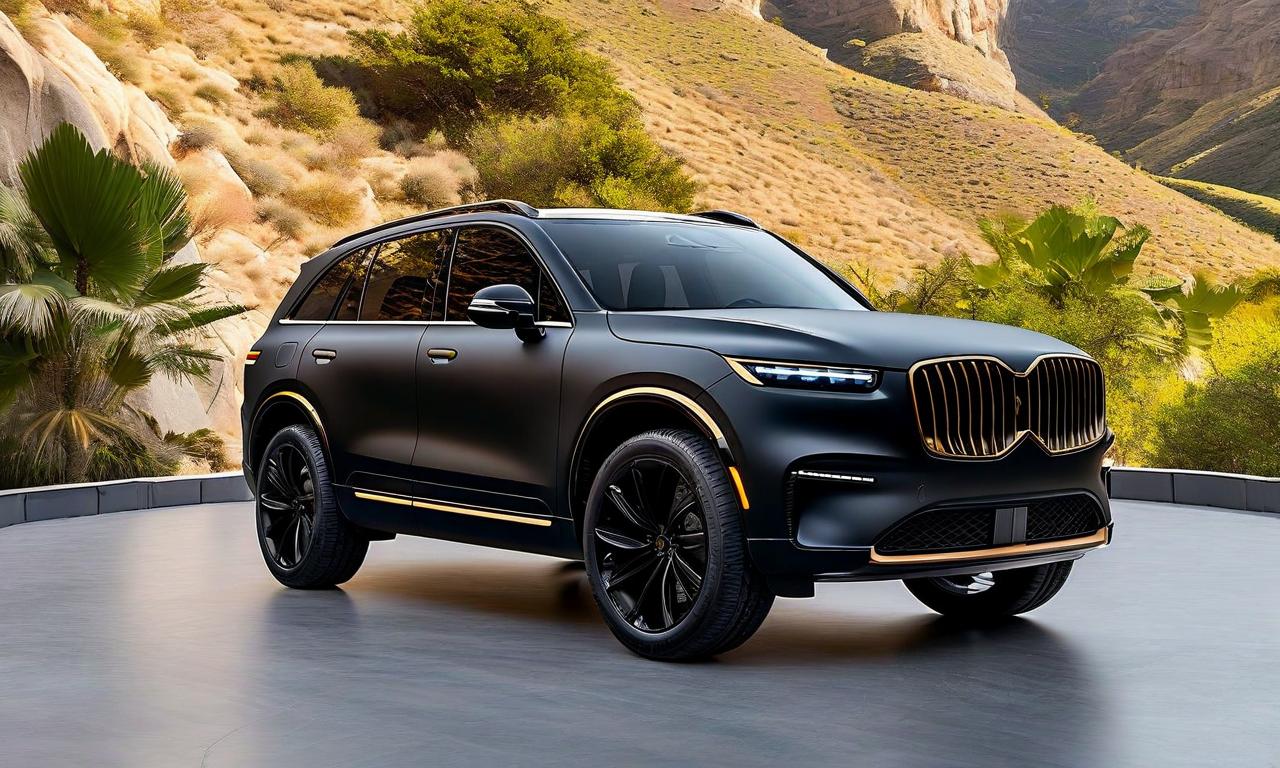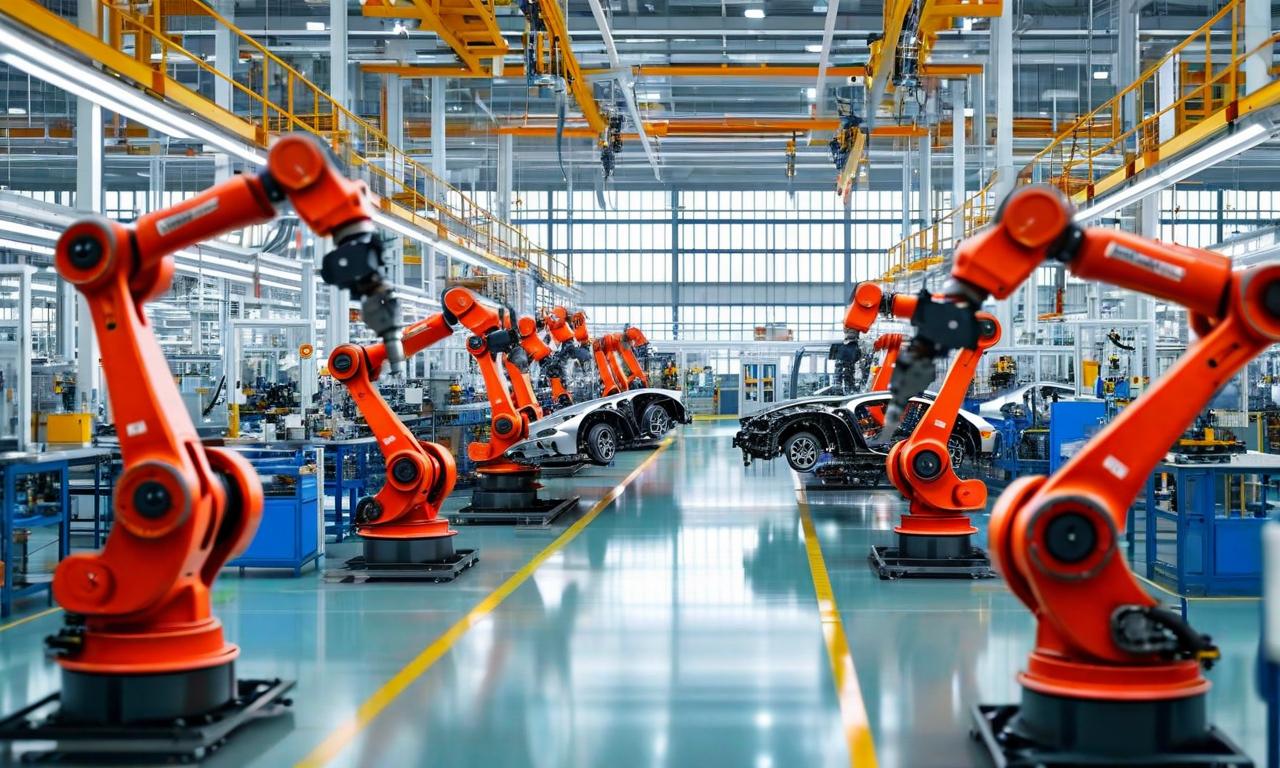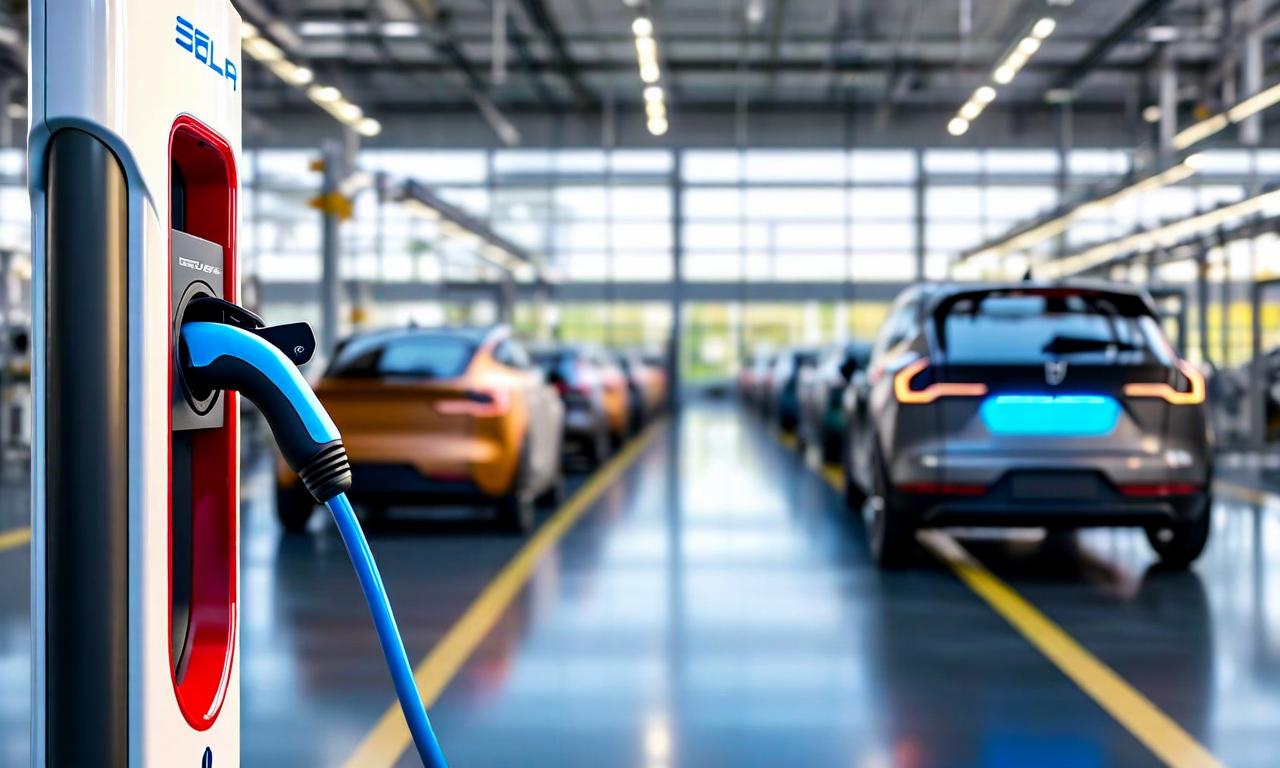Maruti Suzuki and Mahindra Shares Dip Despite Addition to Key Investment Portfolios
Maruti Suzuki and Mahindra & Mahindra shares unexpectedly declined despite being added to prominent investment portfolios. Morgan Stanley included Maruti Suzuki in its Global Equity Markets and Asia Pacific Ex-Japan focus lists, citing potential GST reform benefits and small car strategy. Jefferies replaced Aditya Birla Real Estate with Mahindra & Mahindra in its India equity portfolio, allocating a 4% weightage with a ₹4,200 price target. Despite these positive moves, Mahindra & Mahindra shares traded 2.70% lower at ₹3,202.60, while Maruti Suzuki remained stable at ₹14,752.00. This contradicts the general upward trend in auto stocks due to expectations of lower GST rates.
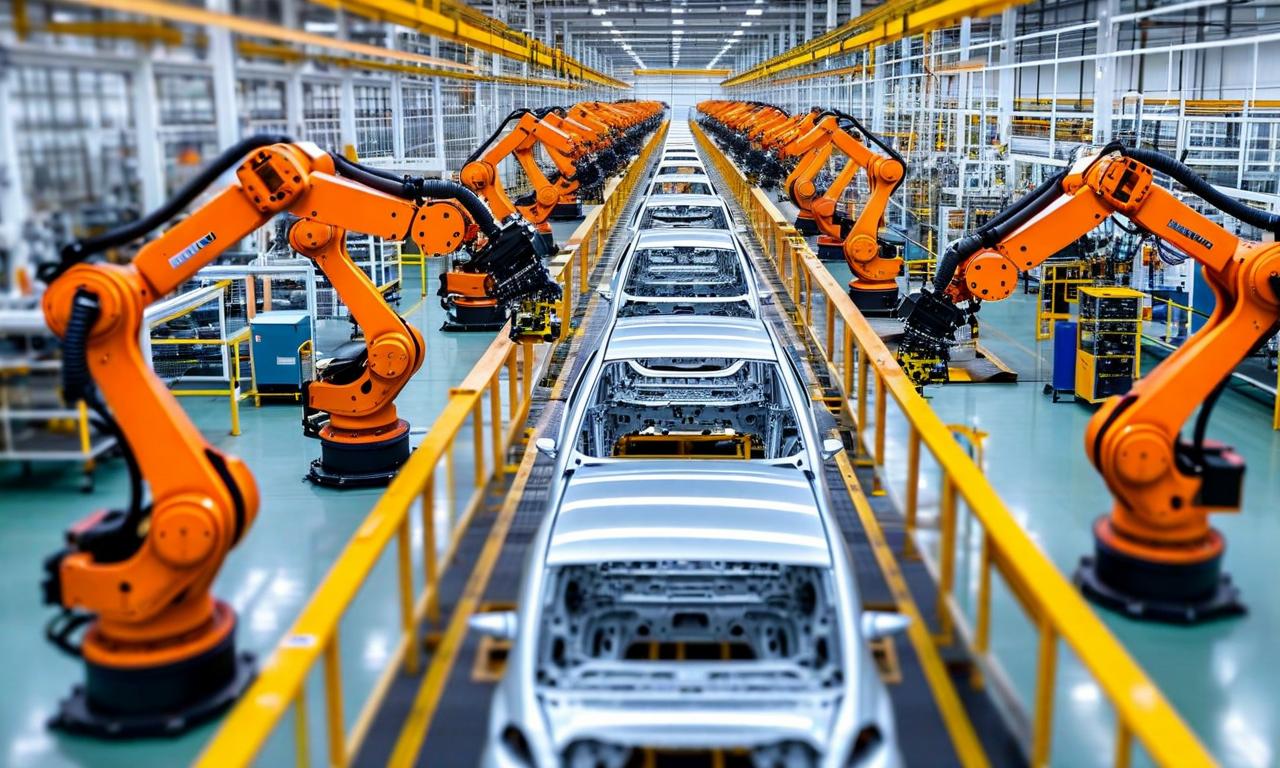
*this image is generated using AI for illustrative purposes only.
Shares of two major Indian automakers, Maruti Suzuki India and Mahindra & Mahindra, experienced a surprising downturn despite their recent inclusion in prominent investment portfolios. This unexpected market reaction comes amidst positive analyst outlooks and strategic portfolio adjustments by major investment firms.
Morgan Stanley Bets on Maruti Suzuki
Morgan Stanley has added Maruti Suzuki to its Global Equity Markets and Asia Pacific Ex-Japan focus lists. The investment firm cited potential benefits from GST reforms and Maruti Suzuki's strategic focus on small cars as key factors for this decision. Morgan Stanley's optimistic outlook projects double-digit revenue growth for Maruti Suzuki in the future, supported by new model launches and increased exports.
Jefferies Adjusts India Portfolio
Chris Wood of Jefferies has replaced Aditya Birla Real Estate with Mahindra & Mahindra in his India equity portfolio. The 4% weightage allocated to Mahindra & Mahindra comes with a price target of ₹4,200.00, signaling confidence in the company's future performance.
Market Performance
Despite these positive developments:
- Mahindra & Mahindra shares traded 2.70% lower at ₹3,202.60
- Maruti Suzuki shares remained relatively stable at ₹14,752.00, close to its all-time high of ₹14,895.00
This market behavior contradicts the general trend in auto stocks, which have been rallying on expectations of lower GST rates on automobiles ahead of the festive season.
Maruti Suzuki's Recent Corporate Activities
Adding context to Maruti Suzuki's corporate governance, the company recently held its 44th Annual General Meeting (AGM). Key highlights from the AGM include:
- Consideration of audited standalone and consolidated financial statements
- Declaration of dividend on equity shares
- Appointment and re-appointment of directors, including Mr. Kenichi Ayukawa and Mr. Kenichiro Toyofuku
- Appointment of Price Waterhouse Chartered Accountants LLP as Statutory Auditors
- Special business items such as alteration of the Object Clause of the Memorandum of Association and appointment of Mr. Koichi Suzuki as a Director
These corporate actions demonstrate Maruti Suzuki's commitment to maintaining strong governance practices and strategic leadership, which may contribute to its attractiveness for investment portfolios despite short-term market fluctuations.
As the auto sector navigates through expectations of GST reforms and the upcoming festive season, investors will be closely watching how these portfolio inclusions and corporate developments translate into long-term performance for Maruti Suzuki and Mahindra & Mahindra.
Historical Stock Returns for Maruti Suzuki
| 1 Day | 5 Days | 1 Month | 6 Months | 1 Year | 5 Years |
|---|---|---|---|---|---|
| -3.16% | -3.93% | -5.62% | -2.22% | +16.21% | +105.10% |

